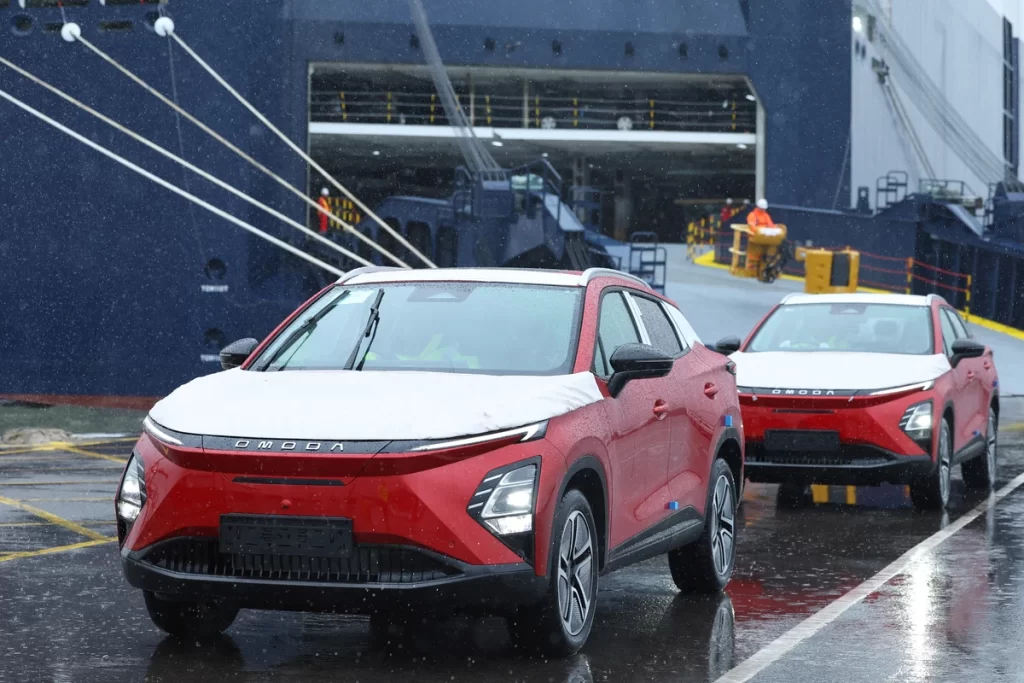Chinese Automaker Chery Considers UK Production Facility
3 min read

Chinese automotive powerhouse Chery is exploring the possibility of establishing a manufacturing base in the UK, according to a high-ranking company official. Victor Zhang, the head of Chery’s UK operations, shared with the BBC that a final decision on the matter is forthcoming and that the company views this as an impending development.
Chery, founded in 1997 and one of China’s largest car manufacturers, is already gearing up to commence production in Spain. Zhang emphasized that Chery’s strategy for Europe involves a strong focus on localization, aiming to tailor their approach to meet regional market demands.
Zhang refuted claims that Chery’s export success has been unduly aided by unfair subsidies. The company, a major player in the global automotive industry, has established itself as China’s top vehicle exporter and has set its sights on further expansion. As part of this growth strategy, Chery has introduced two new brands dedicated to the international market: Omoda and Jaecoo.
In the UK, the Omoda brand made its debut last month, launching the Omoda 5 SUV in both electric and petrol variants. The company has already set up a network of 60 dealerships in the UK, with plans to increase this number to over 100 by year-end.
The British market is not the only one attracting Chinese automotive interest. Competitor BYD, which competes with Tesla for dominance in electric vehicle production, has also established numerous dealerships in the UK. Meanwhile, SAIC, another Chinese manufacturer, is well-entrenched in the UK market under the historic MG brand.
Currently, vehicles destined for the European market are manufactured at Chery’s main plant in Wuhu, China. However, this is set to change. Chery has partnered with Spanish firm EV Motors to produce Omoda and Jaecoo models at a former Nissan factory in Barcelona. Despite this commitment, the UK remains a potential site for a new assembly facility.
Zhang confirmed that while the Barcelona project is a certainty, discussions are ongoing regarding a UK plant. “Barcelona is a commitment we are firmly backing,” Zhang explained. “For the UK, we are still evaluating options. To be honest, we are open to all opportunities. It’s only a matter of time before we make a decision, provided everything falls into place.”
A spokesperson from the UK’s Department for Business highlighted the thriving nature of the UK auto sector. While unable to speculate on specific investment decisions, they expressed a positive stance towards Chery’s Omoda launch and any potential new investments.
Chery is not limiting its search for production sites to the UK alone. The company is also in discussions with the Italian government about possible manufacturing ventures in Italy. Zhang emphasized that the decision will be influenced by a variety of factors, not just government incentives. “This is a major investment decision, and it involves a mix of considerations,” he said. “We must evaluate the market, educational resources for skilled labor, supply chains, and logistics.”
The push for local manufacturing has gained urgency since July, when the EU imposed high tariffs on Chinese electric vehicle imports. The EU cited concerns over Chinese subsidies making their vehicles unduly cheap and competitive, which they argued undermines European manufacturers. China has countered these measures as protectionist.
By establishing production facilities in Europe, Chery aims to circumvent these tariffs. However, Zhang reassured that the company’s commitment to local production is driven by a desire to align with market needs rather than by exploiting any unfair advantages. “We are committed to adapting to local markets and providing high-quality products through the best dealerships. Localization is our long-term strategy,” he affirmed.
While the UK has yet to announce its stance on similar tariff measures, the global automotive landscape is shifting. China’s domestic car market is vast, with over 30 million vehicles sold annually. The country’s global market share is also substantial, with approximately 5 million cars exported last year—a 64% increase from the previous year. Although Chinese brands currently account for a modest 5% of UK car sales, their competitive pricing could accelerate their market presence.